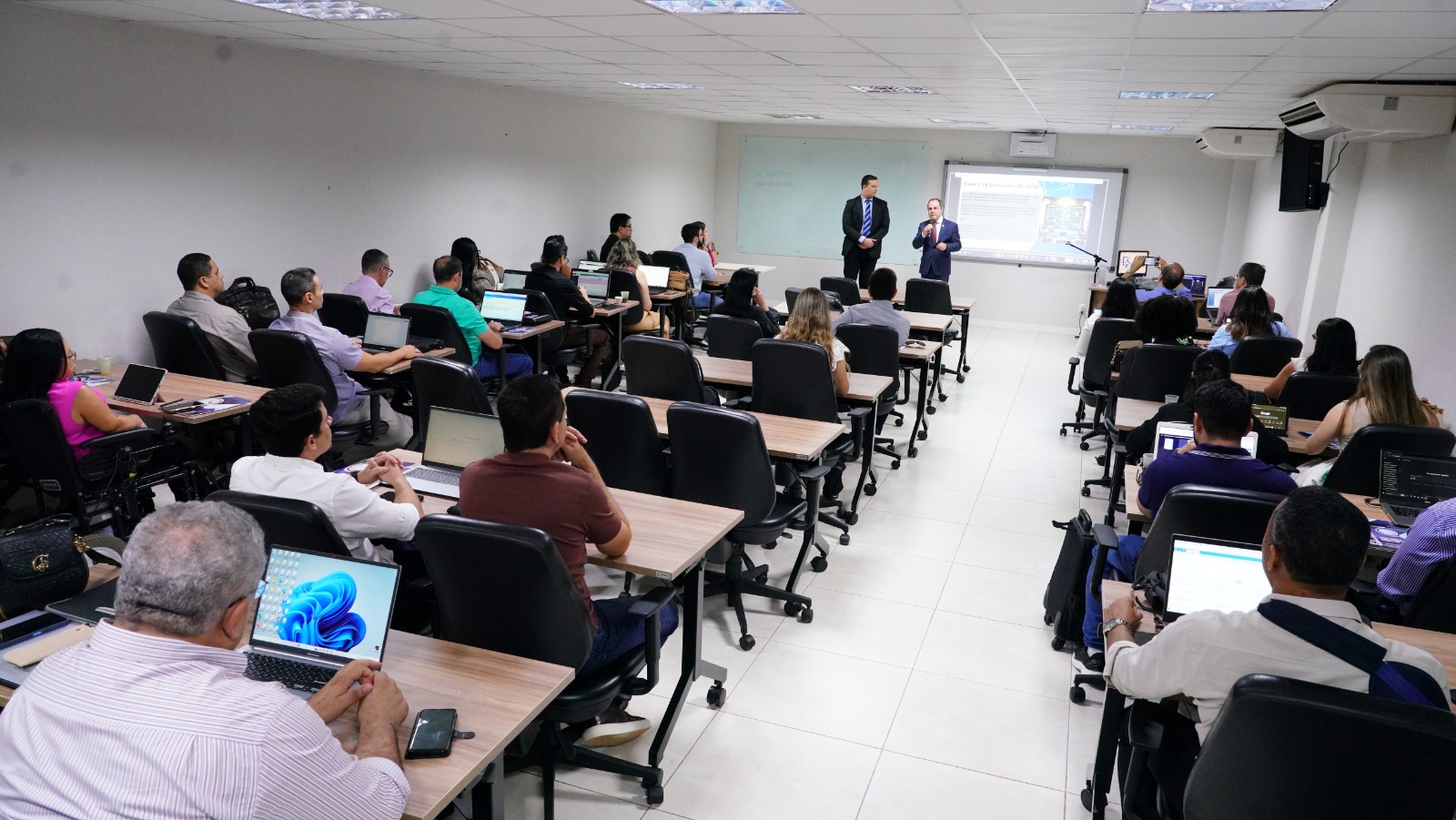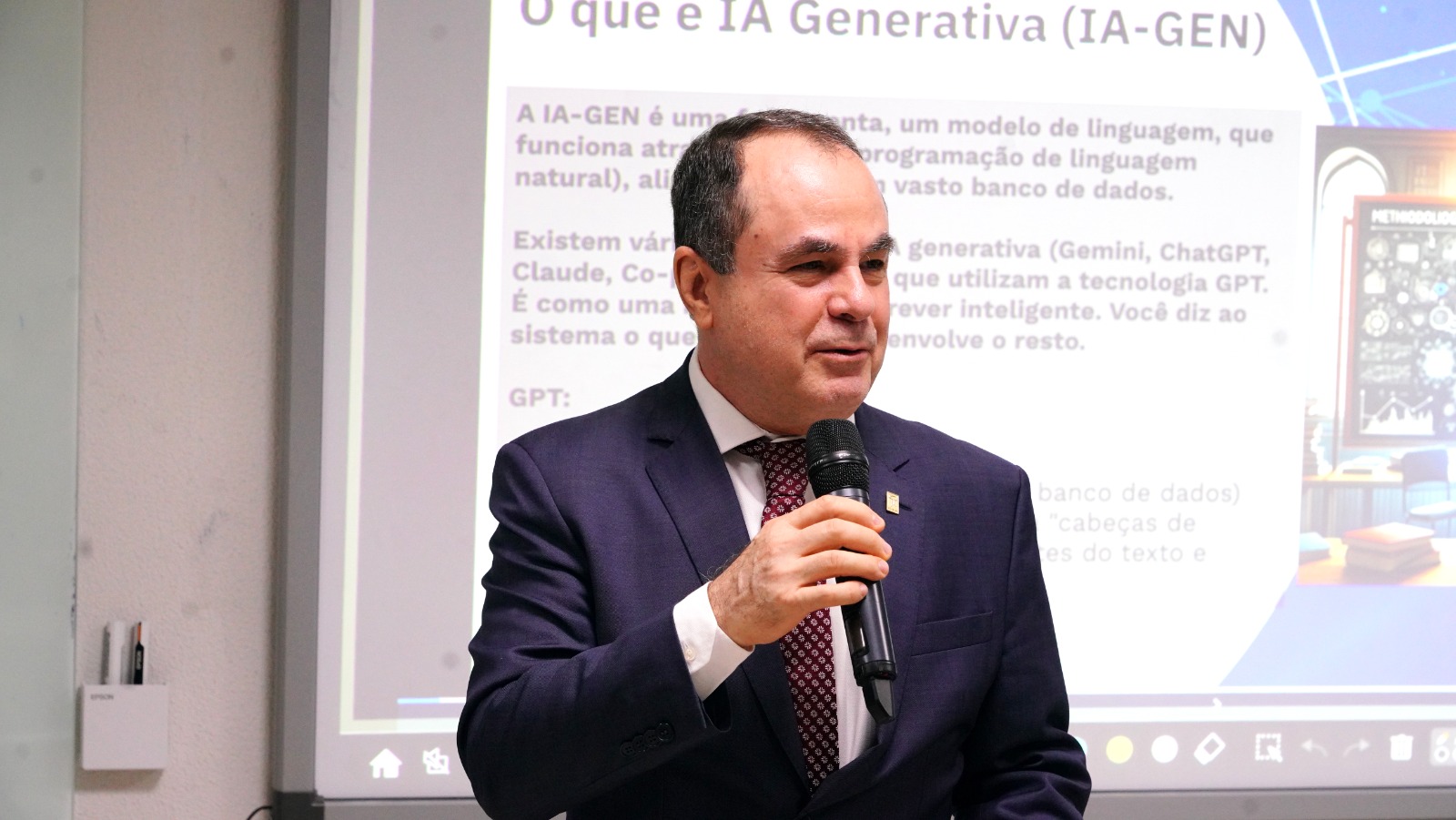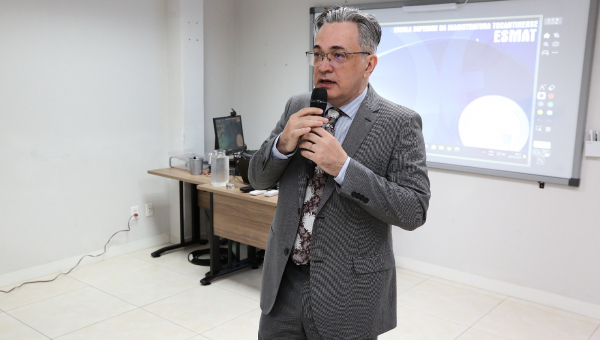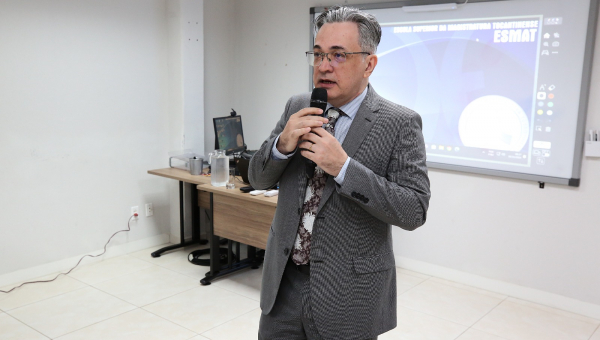
Magistrates, legal advisors and civil servers from the Judiciary of the State of Tocantins participated on Monday (November 18th) and Tuesday (November 19th) in the course on “Practical Generative Artificial Intelligence Laboratory (IAGEN) - Applications in the Judiciary”, promoted by the Superior School of the Judges of the State of Tocantins (Esmat).
The course, taught by professors Irving William Chaves Holanda and Haroldo Carneiro Leão Sobrinho, was structured to train the participants in the efficient, ethical and critical use of IAGEN, considering the growing complexity of the Brazilian judicial system. Theoretical and practical activities explored the potential of the technology to optimize judicial tasks, reduce procedural bottlenecks and improve data analysis, offering comprehensive learning for participants.
Opening
During the opening of the activities, Justice Marco Villas Boas, General Director of Esmat and President of the Permanent College of Directors of State Judicial Schools of the Magistracy (Copedem), highlighted the importance of digital transformation for the advancement of the Judiciary. “Digital transformation is already a reality in the Judiciary and the Judicial Schools play a fundamental role in this process. We need to train our magistrates and civil servers so that they can use new technologies ethically in favor of justice, ensuring more efficiency and speed in the provision of justice,” he said.

On the same occasion, magistrate Wellington Magalhães, coordinator of the course, who led the opening of one of the classes, emphasized the commitment to the ethical and responsible implementation of technological innovations.
“Our commitment is to ensure that this innovation is implemented ethically and responsibly, respecting fundamental rights and guarantees. We are excited about the possibilities that generative AI brings to the future of the judiciary and are confident that this project will be a significant step towards a more efficient and fair system,” he commented.
Testimonials
Everton Moura Mainardes, a civil server at the Forum of the district of Cristalândia, stressed the relevance of the course to the routine of judicial professionals. For him, the combination of theory and practice has been essential in broadening his horizons on the use of artificial intelligence.
“The course has been very valuable for us who still don't have a clear vision of artificial intelligence at work. In addition to demystifying some ideas I had, they [the teachers] bring a practical approach, such as creating personalized prompts, which are essential for programming AI according to each specific task. This broadens our field of study and our ability to think of more efficient solutions,” he said.
Janaina Paiva Almeida, an advisor to the Civil and Criminal Court of the district of Porto Nacional, also emphasized the importance of the practical actions carried out. “The activities helped us understand how to formulate prompts and evaluate the pros and cons of artificial intelligence. I realized that technology needs to go hand in hand with human beings. Our knowledge combined with advanced tools only tends to improve the quality of work,” she commented.
Participants had access to practical labs, using tools such as ChatGPT to develop chatbots, transcribe hearings and format automated decisions. In addition, they explored new menu templates in line with the Recommendation 154 of the CNJ of 2024, reinforcing the commitment to modernization and procedural efficiency.




_thumbnail_thumbnail.jpeg)
_thumbnail_thumbnail.jpeg)
_thumbnail_thumbnail.jpeg)
_thumbnail_thumbnail.jpeg)
_thumbnail_thumbnail.jpeg)
_thumbnail_thumbnail.jpeg)
_thumbnail_thumbnail.jpeg)
_thumbnail_thumbnail.jpeg)
_thumbnail_thumbnail.jpeg)
_thumbnail_thumbnail.jpeg)
_thumbnail_thumbnail.jpeg)

_thumbnail.jpeg)
_thumbnail.jpeg)
_thumbnail.jpeg)
_thumbnail.jpeg)
_thumbnail.jpeg)
_thumbnail.jpeg)
_thumbnail.jpeg)
_thumbnail.jpeg)
_thumbnail.jpeg)
_thumbnail.jpeg)
_thumbnail.jpeg)

